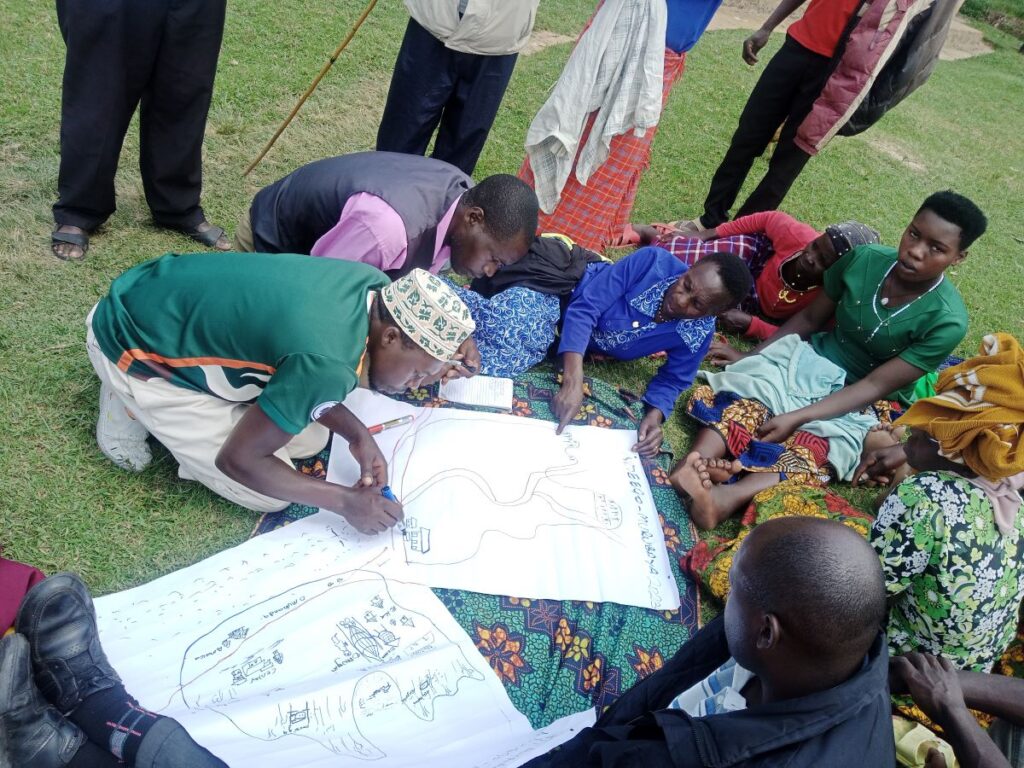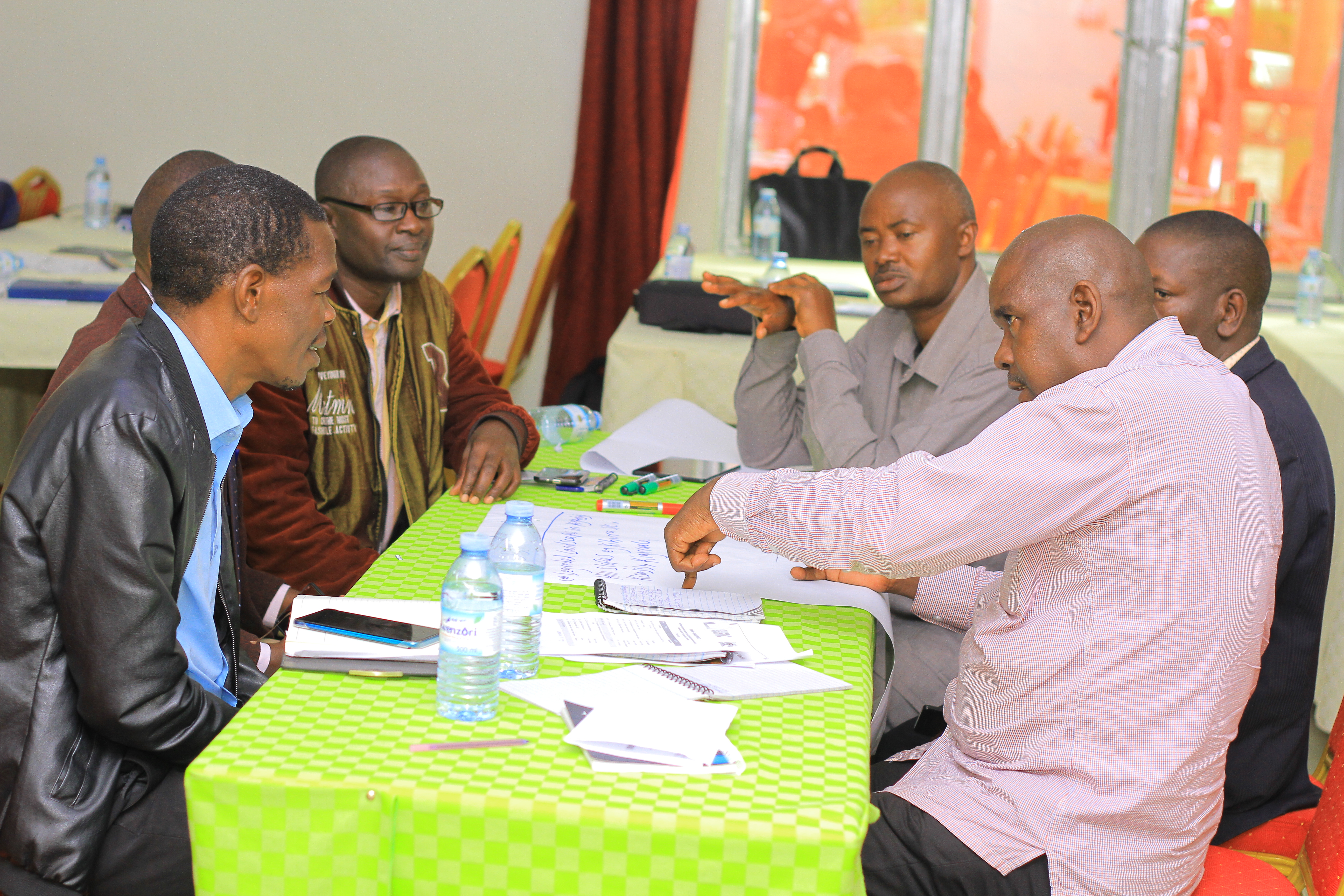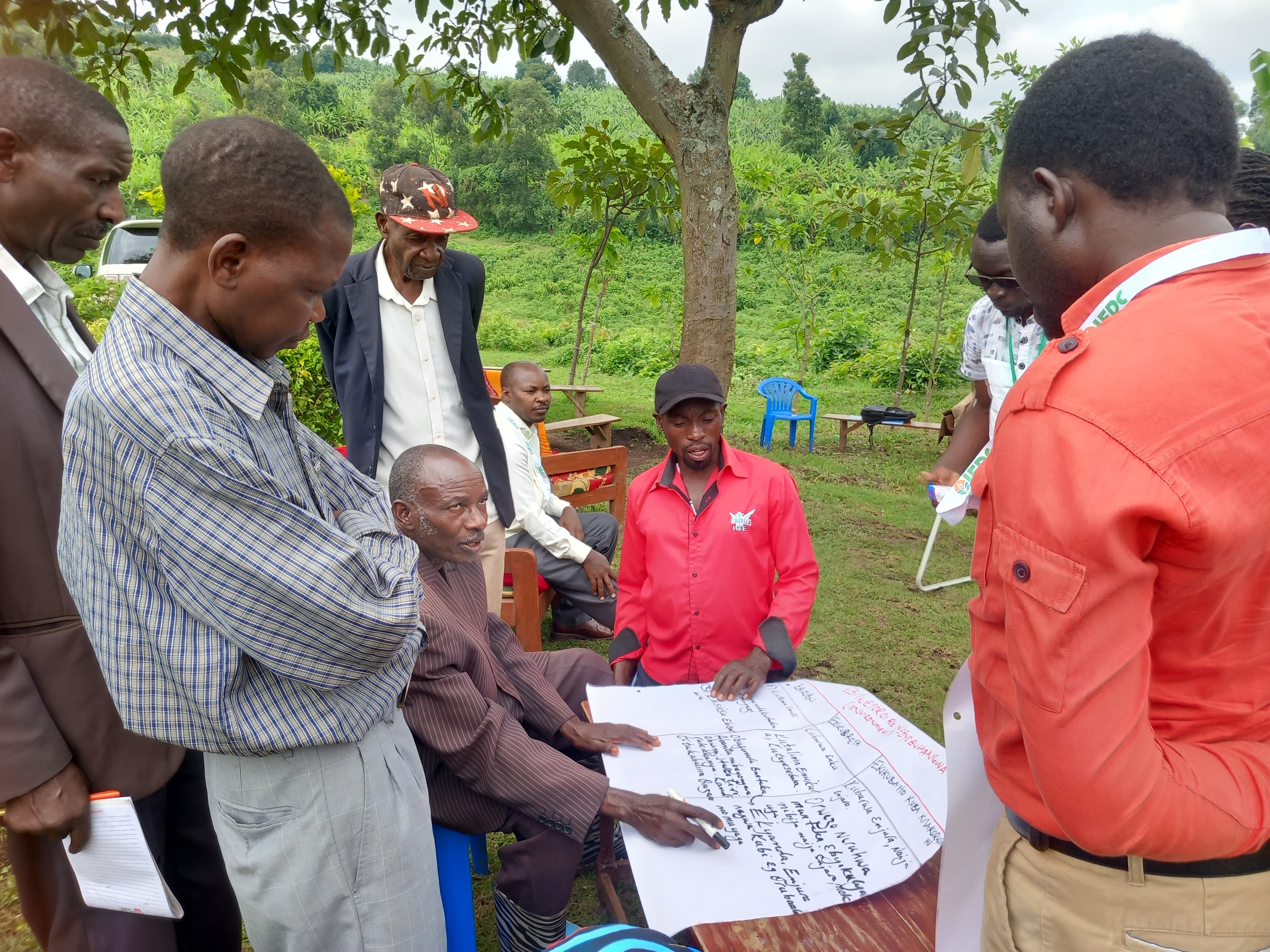
IFDC recently launched the Building Resilience and Inclusive Growth of Highland Farming Systems for Rural Transformation (BRIGHT) project in Uganda. This four-year initiative (2022-2026), valued at €13 million, is funded by the Embassy of the Kingdom of Netherlands (EKN) and implemented in partnership with Agriterra, the Uganda Ministry of Agriculture, Animal Industry, and Fisheries (MAAIF), the National Agricultural Research Organization (NARO), district local governments, and private sector partners.
More than 106,560 highland farm households will be strengthened through the program in the Kigezi, Mt. Elgon, and Rwenzori regions. The project intends to improve equitable decision-making, enhance food and nutrition security, improve access to inclusive financing, decrease the yield gap to increase farmers’ incomes, and facilitate sustainable land use and better access to input and output markets using the integrated farm planning (PIP) and watershed approaches.
Five core components form the basis of the project: farm household and farming systems, sustainable land use and crop production, market access and value chain development, food and nutrition, and gender, youth, social, and financial inclusion.

BRIGHT Deputy Team Lead Grace Babirye shared the focus of the project, saying, “Recognizing the complex interdependencies between people and ecosystems that affect resilience, the BRIGHT project is working with farm households to promote the adoption of climate-smart agricultural practices, including the diversification of production and use of quality inputs to mitigate the negative impact of climate-related shocks and boost production.”
Farm households will explore alternative income-generating activities, including off-farm activities, to strengthen their households. Farmers and their families will improve their management and maintenance of household assets, including natural resources, such as soil and livestock.
Babirye went on to speak about the potential impacts of the program, explaining, “This will ensure that farm households are integrated into robust formal and informal social networks that can ease the impact of climate and economic shocks.”
“Within the widest circle of influence, market access will empower subsistence and market-ready farm households to integrate equitably and on their own terms into value chains through collective action in their producer organizations to generate a living income.”
Grace Babirye, BRIGHT Deputy Team Lead
The announcement of the project was welcomed by both district and sub-county leaders, who applauded the initiative. Bwire Paul, Deputy Resident District Commissioner for Kabarole District, officiated the pre-entry meeting and noted that the project has come at the perfect time, as the Rwenzori region is experiencing several economic and social challenges.
Paul expressed the vital need for this project, stating, “Our communities have several challenges, and it is my humble plea that this project will emphasize cohesion in families. We have been hearing accounts of drug abuse by youth, domestic violence against women, and general unemployment across the country, which has destabilized our well-being.”

Last month, the BRIGHT project team conducted meetings in the communities, where people were asked to identify the problems their villages are facing, suggest possible solutions, and determine what they can do to address the problems. Through these meetings, community members outlined their vision, noting each person’s role in achieving this.
Kiiza Amos, a local resident, showed his appreciation for the activity, saying, “It is good that we are developing our own visions and aspirations as a village. This will help us to take ownership, which calls for community action to achieve our dreams. We have issues that are affecting us, but no one to guide us, especially on land fragmentation and erosion. We can now work together to identify solutions.”
BRIGHT is poised to create positive and lasting change in the lives of rural community members. By encouraging community participation and fostering social cohesion, the project seeks to address pressing challenges, ultimately working toward a brighter and more prosperous future for the farmers in Uganda.




